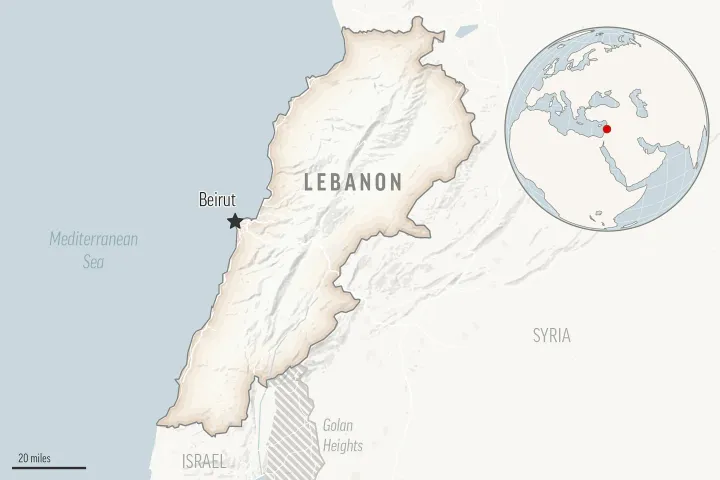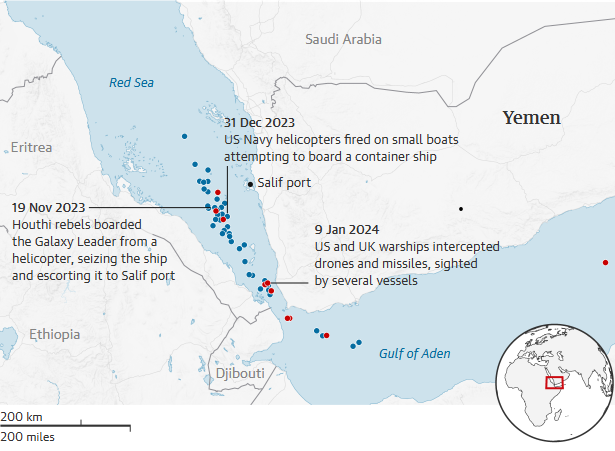Anti-Israel Militancy Destroys Nations & Does Little for Palestinians: The Case of Jordan

Evil self-destructs. In other words, one who creates a system driven by negative and evil intentions will fail, which will set them back so much that they will be worse off. Antisemitism mutated into a different global system after the state of Israel was founded in 1948. This was a watershed moment because the disintegration of the Ottoman Empire created impetus for the integration of many new states in the Middle East after World War II. The failure to integrate Palestinian Arabs into a stable state after the Israeli War of Independence created a tragic refugee crisis that haunts the world today. In the quest for a solution for displaced Palestinians, different methods and ideologies have emerged. This article focuses on anti-Israel militancy as an ideological alternative for the resolution of the challenges faced by displaced Palestinians and how this ideology destroys nations that host supporters of this path.
The Inherent Problem with Anti-Israel Militancy
Anti-Israel militancy is based on the use of violence to unseat the state of Israel. It involves an attack that will either lead to the expulsion or mass killing of Israelis. This is rationalized with a wide array of views ranging from religious teachings to military and political ideas.
The inherent problem is that anti-Israel militancy is a very efficient tool for populism. Hatred for Israel is premised on raw emotional appeal. Populism leads to totalitarianism, and this, in turn, leads to a disregard for vital internal systems and structures.
Hannah Arendt argued that totalitarianism emanates from two things:
1. The essence of terror, and
2. Principle of logicality[1].
In this case, Israel is cast as an irredeemable evil in the Middle East. And this justifies terror and violence against Israel. This follows a three-stage sequence that involves:
1. Otherization,
2. Problematization, and
3. Necessitation of Extermination[2]
These three themes have culminated in a strategic communication process in states hostile to Israel. And this gives validation to governments – some of which are the worst on the planet to continue holding on to power.
The first stage of the populist teaching that leads to militancy against Israel is to otherize Israel. This ranges from a wide array of accusations from Israelis being foreign, colonizers, or simply misfits.
In the second stage, Israel is problematized as an entity that is causing problems and issues in the Middle East. Through this, they conveniently overlook all internal problems and develop an entire industry that aims at problematizing Israel’s existence.
After that, the need to destroy Israel militarily is entrenched on the basis of mystical and other accusations. It is so strange that most people in countries hostile to Israel have never met an Israeli before. All they know are a few Israeli leaders who are perpetually demonized to justify the need to destroy Israel militarily.
Anti-Israel Populism Destroys the Host Country
Jordan had authority over a significant percentage of the Palestinian people after Israel’s war of independence. In 1949, when Jordan accepted Palestinians as citizens of their state, tensions emerged with the locals about the status of these newly admitted citizens. These cracks continued throughout their stay in Jordan as neighboring states developed policies on how to host and integrate displaced Palestinian refugees.
Palestinian refugees took up armed resistance, and this led to a notion that Jordan had not done enough to pursue the policy of destroying Israel militarily. This led to assassination attempts on the king of Jordan in 1951 and several others in the 1970s when the Palestinian armed movements got more sophisticated.
With the militarized Palestinians in Jordan, there was the need to restrict their activities. This involved reducing the number of seats they held in the Jordanian National Assembly in 1974, and travel restrictions in 1983. Later, Jordan gave up its claim to the West Bank in 1988, and ultimately normalized ties with Israe in 1994.
Why will Jordan do that?
The notion of a state-within-a-state was against Jordanian sovereignty. While the political aspect could be managed, dealing with armed Palestinian militants threatened to destabilize Jordan.
Thus, in 1971, the Jordanian government had to expel the armed wing of the Palestinian Liberation Organization (PLO), which justified violence against Israel. They ended up in Lebanon, where another war ensued.
It is clear from all this that the armed militancy of pro-Palestinian groups tends to destabilize countries. This could explain why some leading Islamic countries do not accept Palestinian refugees.
Hate For Israel Blinds Nations to Vital Issues
A militant-oriented hatred for Israel comes with a single direction. It is all focused on destroying Israel. This is something that diverts attention to every possible solution to pressing problems and issues.
As identified above, an entire media system is created in places where hatred for Israel is sacred and noble. Thus, questions about problems in the state and failures in leadership are swept outside the carpet. As long as a leader can demonstrate they hate Israel, they can be as corrupt as they want and still remain legitimate to audiences raised to view Israel as the biggest problem for them.
Sudan's civil war might have been averted if they had debated and resolved pertinent internal issues relating to statecraft. However, for three decades, they had a leader who used anti-Israel sentiments to mislead the people to stay in power. Sudanese nationals are now consolidating essential state structures through bloodshed. It is after they get a ceasefire – whenever that happens that they can debate on which state structures they want. This is something Sudan's neighbors did after the end of the Cold War. Most of them are still struggling to develop. However, under the cloud of anti-Israel sentiments, a dictator kept the state underdeveloped for over 30 years.
Anti-Israel sentiments are one of the biggest drivers of radicalization and recruitment of terrorists[3]. Most of these terrorists never get to harm Israel. They typically harm the states they live in. Terrorists have killed more Muslims than non-Muslims. However, anti-Israel sentiment is one of the main conversion points for the development of terrorists.
Palestinians Get Nothing
When one looks at the war in Gaza now, the obvious question is – are there Gazans who would have wanted their leaders to back down and negotiate? Are there Palestinian civilians who have other dreams that should be respected?
The obvious answer is "Yes". However, encouraged by anti-Israel propaganda, these militants are armed by neighboring states, and they put Palestinian civilians before them to fight wars against Israel. This would not have happened if the views Palestinians had of Israel were different.
Palestinian refugees are denied citizenship in Islamic countries. This is justified on the grounds that granting them citizenship will prevent them from going back to pressurize Israel. Thus, they are never fully integrated and will always be cast as "outsiders". This leads to oppression that would not have happened if the perpetual hatred for Israel was limited.
Thus, until the genocidal intent nursed against Israel is achieved, there is no way Palestinians can get a “normal” life. They will be used as pawns and a pressure group perpetually, hindering whatever dreams they have.
Jordan sought to end this by granting them citizenship. However, anti-Israel militancy made it impossible to do so. Thus, they were freed to go pursue their own goals and ends as they deemed fit.
Importation of Undue Pressure
Some countries like Türkiye have been cautious about how they hosted Palestinian refugees. The Turkish Republic has always been skeptical about religious fanaticism. Thus, hosting Palestinians has been kept under the category of civilian empowerment and protection – as opposed to militancy in the name of Islamism.
Erdogan moved towards Islamism to hold on to power. This led to an increase in anti-Israel sentiments and sympathy for Palestinian militancy. Now, Erdogan is facing a backlash from the population that was mobilized in the name of anti-Israel narratives. Türkiye’s government is under pressure to intervene militarily in Gaza.
As a means of showing their disdain for the inaction, the ruling party lost local elections in April. This forced the Turkish leader to get tough on Israel in his speeches. Such a trend was previously unknown to the republic. However, it is growing significantly at the moment.
Jordan endured that for three decades before deciding to break away from the anti-Israel militancy ideology. This put the country on a path of stability and growth.
Conclusion
Anti-Israel militancy drives and is driven by populism. It is steeped in the otherization and problematization of Israel, thereby justifying the military destruction of Israel. This sentiment puts vital issues on hold and exaggerates the threat posed by Israel to people who have little to no connection to the Jewish state. Anti-Israel sentiments justify the rule of dictators. The militant version contributes to the destabilization of host countries, and in the end, it sows seeds of the fantasy of hatred. These seeds sprout and often affect the government of the host country – rather than Israel as a country. Palestinians are excluded and degraded in their host countries because of the perpetual unending hate for Israel. This means until the genocide of anti-Israel militancy is attained, these Palestinians' lives are to be placed on hold, and they can never be normal citizens in the international political system. In states where blind anger is encouraged, the governments come under undue pressure, as the case was in Jordan and now in Türkiye. Such pressures encourage wars and stall development. An unhinged hatred for Israel is a mobile van of terror that moves from country to country, causing division, hatred, bloodshed, and destruction among local and regional players. While Israel knows they are targeted, most of the victims of these anti-Israel sentiments never see it coming. And many of them are Muslims who are consumed by the hatred concocted to poison Israel and the Jewish people.
[1] Hannah Arendt. The Origins of Totalitarianism. London: Penguin Classics, 2018
[2] Zygmunt Bauman. Modernity and the Holocaust. Ithaca, NY: Cornell University Press, 1989.
[3] Elise M. Roberts-Ingleson & Wesley S. McCann. "The Link Between Misinformation & Radicalisation: Current Knowledge & Areas for Future Inquiry" Perspectives on Terrorism XVII (I) 2023 pp36-49




